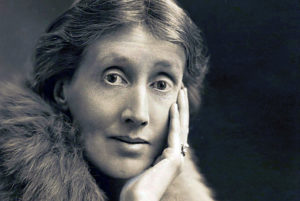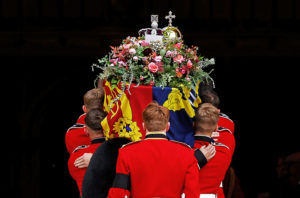“Do you remember,” the late Jan Morris asked our late Queen, “when they climbed Everest for the first time, and the news came to you on the day before your coronation?”
It was 2001. The writer and the monarch were standing in the White Drawing Room at Buckingham Palace, at an event to celebrate British publishing.
“Yes of course I remember,” the Queen said sharply.
“Well I was the person who brought the news back from Everest, so you got it on time.”
The Queen looked at Morris in silence. Before her stood a properly large lady — a 6ft 4” lady, with wispy white hair harassing a square head. A fascinating, but somewhat odd face. A correct Englishwoman’s voice, but sultry, with a male pitch. A laugh like a cat’s laugh, hissy and languid. And a lady. Were there ladies on Everest, in 1953?
Morris did not explain to the Queen that she had undergone gender reassignment surgery in the decades since the mountain was defeated. “How could I explain to her?” she later said. “Life is too short.”
How to explain Jan Morris? Who was she? What was she? Faced with a life like this, the Queen’s confusion is our own. Morris was a man, and then a woman. He had been a debonair foreign correspondent as the jet age dawned, who transformed into an apparently cheerful old dear wearing pearls in a damp corner of North Wales. He was a superb travel writer who yearned to compose novels, then wrote the Pax Britannica trilogy, the greatest — or at least the most entertaining — narrative history of the late 20th century instead.
She was a trickster who denied the existence of truth, then struggled to have her female identity accepted by her family, her profession, and her society. She wanted to be a raffish romancer, but was “happily married” for 70 years. She hymned British Imperialism, then became a Welsh Nationalist. She was described as an enigma, yet underwent the least enigmatic voluntary medical procedure possible. Her public persona was all bonhomie, but she lived alongside her own gravestone; it haunted the corner of her library for decades. Every time she said she had retired, she resurfaced scant months later with a new book — even after she died in 2020, there she was again, a little while later, with another one. There were 58 of them in the end. More than anything, she was a flirt, a tease. “My life is one long allegory,” Morris claimed. To which the reply, inevitably, is: for what?
Jan Morris was born James Morris in the Somerset seaside town of Clevedon in 1926. His father’s family was Welsh, his mother’s vaguely Norman — division was established as an early theme. The young boy wandered the hills overlooking the coast near his home, already isolated, already convinced “I had been born in the wrong body, and should really be a girl”, already yearning for the unobtainable. Then the miseries of school (Lancing College), where he was always in trouble, “beaten by prefects more than any other pupil” during the early months of the war. As the conflict wound down, Morris joined the 9th Lancers, serving in Venice, Trieste, and Cairo as an intelligence officer, undertaking what she called “squalid duties of repression and withdrawal”.
In 1953, Morris, at 27 the new foreign editor of The Times, became the official journalist on Edmund Hillary’s expedition to Everest. Breaking the news that Hillary had conquered the mountain made Morris’s career. He was a classic, frenzied overachiever. Celebrated books followed, such as Venice (1960), and the sex-change memoir, Conundrum (1974). These are the room temperature facts, diligently recorded by Paul Clements in his new biography, Jan Morris: Life from both sides.
You have to feel sorry for Clements. He was friendly with his subject, which is dangerous for a biographer. Morris destroyed her private papers, and lived, at times, as if existence itself was an inside joke. “Almost nothing in life is what it seems”, she wrote, and we would do well to apply this mantra to Morris’s own life. She claims she knew she was a woman when she was three or four years old — yet she pursued emphatically manly careers in the army and the press. She claimed an ambiguous sexuality — but when she met her wife, Elizabeth, Clements notes that “any questions about gender and sexuality were swept aside”. Five children, one of whom died, followed. The marriage was a perfect patriarchal model: Morris away obsessively working the globe; Elizabeth tending children, garden, accounts and house, alone. “Jan,” said her daughter Suki, “was a very complicated person, not in my view, the simple, lovely being that people see at all”. Nothing was what it seemed. All Clements will say is that she had a “contradictory nature”.
Morris began taking oestrogen pills in 1964, the first stage of an eight-year physical metamorphosis. She had been near-suicidal in the run up to this decision. And at the very moment her identity as a man was crumbling, her country was too. What did James Morris see when he looked around in 1964? He had been born at a time when Britain still decided world questions, and he had always approved of this. Now God was withdrawing His credit from the British. After Everest, Morris was a foreign correspondent for the Guardian. He filed from Cape Town and Bogota, from Cairo and Kabul, from Tel Aviv and Isfahan. He had followed Britain’s armies through the long, bleary rearguard action of imperialism. He had watched that “distasteful ignominy” at Suez. “We were living in a twilight time,” Morris wrote. “Old forces were dying and new energies emerging. Patterns that had seemed permanent were falling into chaos.”
Everywhere was retreat and evacuation. The Promethean spirit — “Remember that you are an Englishman, and have consequently won first prize in the lottery of life,” the spirit used to whisper — that executed Mughal princes without trial, that snaked railways underneath Rhodesian waterfalls, that doomed prisoners to silent wards on the frigid shores of the Tasman Sea, that Empire-building spirit, was gone. Things would never be the way they were again.
Bereaved of their worldly footholds — “the grand illusion had collapsed, and England was a European island once more,” he wrote — the British were all alone. Morris’s entire generation was left like Atlas, but relieved of his globe. They would have to find new burdens to carry. It was not enough for him. He wanted more.
So, approaching middle-age, Morris hurled himself into two vast concurrent projects, two escape plans from the wreckage of Britain and his own masculinity. One concerned the past, and the Empire. One concerned the future, and his identity.
Though Clements never makes the connection explicit, it’s clear that James’s decision to become Jan was a peculiarly original response to the end of the British Empire. Read the Pax Britannica trilogy (1968-1978), the first of those projects, written as she transitioned. It is thunderously problematic. Morris described her response to Empire as “sensuous”. She cherished British cruelty in a way no one would dare do today. Empire was was a “flare”, a “blaze”, and an “ambition for its own sake”. As the 19th century turned, the British “yearned to break out of their sad and prosaic realities, and live more brilliant lives in Xanadu”. Other lands, from Ireland to India, were collateral, and Morris could live with that.
Gender shadows these books. Clearly, it made Morris’s hairs stand on end to think about the sheer effrontery of men like Robert Clive, or Admiral “Jackie” Fisher or Winston Churchill. She remembered the gentlemen of the East India Company as “showy, amoral… Plundering, fighting and trading in a spirit of uncensorious give and take”. She loved the men of peak Empire even more. They had everything the men in her generation lacked: constancy, surety, a granite bedrock of Christian faith. Here she is on John Nicholson, an Anglo-Irish Army officer who flew through British India like a tempest. He was “a fable in his own lifetime… He was a fighter… He was a big man… He looked utterly sure.”
By the third volume of the trilogy, Farewell The Trumpets (1978), composed after Morris had her gender reassignment surgery in Casablanca, it was not merely the British Empire that was coming apart. It was British masculinity itself. Suez was the empire’s tomb, and a finale for the British male. Looking back at the troops sent to occupy Port Said in 1955, she saw them as “self-conscious”, their half-hearted war-making “somehow fraudulent”, suffused with a “sham virility”. Around them the Egyptian city stood “shattered and appalled… a bitter memorial to the last display of imperial machismo.” All the certainty had vanished. The sad-sack farrago at Suez raised more than geopolitical questions for Morris. If, after centuries of vigorous domination, British masculinity was impotent and no longer plausible, then why be a British man at all?
Well, how about a woman? This was the second project. In Conundrum, Morris elaborated on her notion of womanhood. It was not designed to please feminists. It was designed to be the opposite of the Victorian imperialists Morris so admired. “My own notion of the female principle was one of gentleness as against force, forgiveness rather than punishment, give more than take, helping more than leading.” In post-Imperial Britain, if Morris could not be a wolf, she would be a lamb. She would escape into her own romantic idea of femininity. To be a woman rather than a man, she argued, was simply a matter of “good taste”.
Published in 1974, Conundrum became, in Clements’ imaginative phrase, a “media circus”. Morris, the handsome writer, was the highest-profile person to change gender in British history. Her persona was savaged in print and on television. “She sounds not like a woman, but like a man’s idea of a woman,” wrote Rebecca West, “and curiously enough, the idea of a woman not nearly so intelligent as James Morris used to be.” Germaine Greer accused a “self-indulgent” Morris of lacking frankness about what her “new body looks like and how it works”. Nora Ephron laughed at her: Morris was “perfectly awful at being a woman; what she has become instead is… A girl”. A particularly brutal drubbing in the Times Literary Supplement left Morris writing to the editor. “Your cruel review of Conundrum has reduced me to tears.”
Every line of today’s battles over gender identity was scripted in the furore around Conundrum and Morris in the early Seventies. She appeared on a BBC talkshow and faced a 45-minute barrage of questions from an MP, a psychiatrist and a feminist. Morris was told that her book was “proselytising and immoral”. Her notion of womanhood was “ridiculous” and “limited”. Morris responded that it was “arrogant” to assume anyone could know what anyone else might feel like. The transexual experience was an “inner-music” and a quest towards a new reality. Gender, Morris told millions of TV viewers, “is the way people feel and the way they want other people to think about them — it is the spirit, the soul, and the innermost essence of what people feel they are.” Morris was saying that trans women are women. She may have been the first to do so in Britain. “I’m afraid you must take it or leave it”, she told the bewildered panel.
Overnight, Morris’s life was truly allegorical. Her life was a bridge between two worlds. The first was the old reality, where identity was confirmed in collective endeavours like the British Empire, inherited beliefs like Christianity and powerful institutions like the Armed Forces or Fleet Street. When she became a woman, Morris was clearing a path towards the second world we live in now. Identity is confirmed by the individual, through a series of deliberate choices rather than an inherited set of traditions, and based entirely on feelings. All she wanted, “was the liberty of us all to live as we wished to live, to love however we wanted to love”.
Morris suspected that she was a prophet. “Is mine only a transient phenomenon” she wondered, “between the dogmatism of the last century, when men were men and women were ladies, and the eclecticism of the next, when citizens will be free to live in the gender roles they prefer?” Asked about the pushback against the trans movement in 2017, an increasingly ancient Morris said our “moment is messy, but I think more and more people will move to my condition”. She believed it was possible that “everyone has the potential to have both genders in them”.
Jan Morris was an early adopter of an ideology that has swept across the Western world in the past 30 years. Conundrum has never been out of print. Morris’s belief — born from the collapse of empire, engineered to replace her imperial faith — that gender is ineffable and innate, are becoming commonplace in institutional settings. When Morris died, one of the leading tributes came from the chief executive of the Tavistock Clinic’s Gender Identity Development Service.
Is this simply fashion? Is this ideology “cronyistic” as Helen Joyce, and other gender-critical writers have suggested? Some feminists argue that gender-identity ideology will be abandoned “when it is no longer in the ascendent”, the politicians and tech billionaires will junk the pronouns in their emails, biology will reassert itself, and women will no longer have penises.
Morris prefigured our present, but perhaps she represented the future too. Our great-grandparents believed that masturbation caused insanity. Our great-grandchildren may come to view the idea that only natal women can bear children with a mixture of condescension, alarm, and laughter. A quaint and horrible belief, like phrenology.
“The sexual attitudes of any given society”, Gore Vidal said, “are the result of political decisions.” He was right. Biological facts exist only up to a point. Power is more important. If power decides that fantasy and feeling take precedence over evolution and biology, then fantasy and feeling become fact. The distinction between the sexes can be socially engineered. The technology to make it so exists.
Whether such a shift will make people happier — which is surely the point of it — is difficult to answer. In her life as a woman, we can detect something quietly unwell about Morris. Nothing was as it seemed. She told interviewers how much she loved floral dresses and embraced a rather desperate frivolity. The hard-edges of James Morris were publicly sanded away. She would no longer take things that seriously — “far better in my opinion to regard the great world as a kind of show, a tragicomedy put on for my fascination”. Such an attitude of high unseriousness can only come from believing that there are no great causes left, that nothing really matters, so you may as well laugh. She praised callowness. “Give me fizz, give me irresponsibility, and if I ever feel maturity creeping in, crack a bottle, put out more flags, and ring bells!”
It was a masquerade. “Many wondered,” writes Clements, “if there was an underlying melancholy behind this facade”. Seen as a whole, Morris’s entire life appears as a trick question, like the one she asked the Queen that day in Buckingham Palace. Could Britain get over the loss of Empire? And could a man be a woman? Morris was not the first, nor will she be the last, to discover that there are no simple answers to either question.
Disclaimer
Some of the posts we share are controversial and we do not necessarily agree with them in the whole extend. Sometimes we agree with the content or part of it but we do not agree with the narration or language. Nevertheless we find them somehow interesting, valuable and/or informative or we share them, because we strongly believe in freedom of speech, free press and journalism. We strongly encourage you to have a critical approach to all the content, do your own research and analysis to build your own opinion.
We would be glad to have your feedback.
Source: UnHerd Read the original article here: https://unherd.com/






